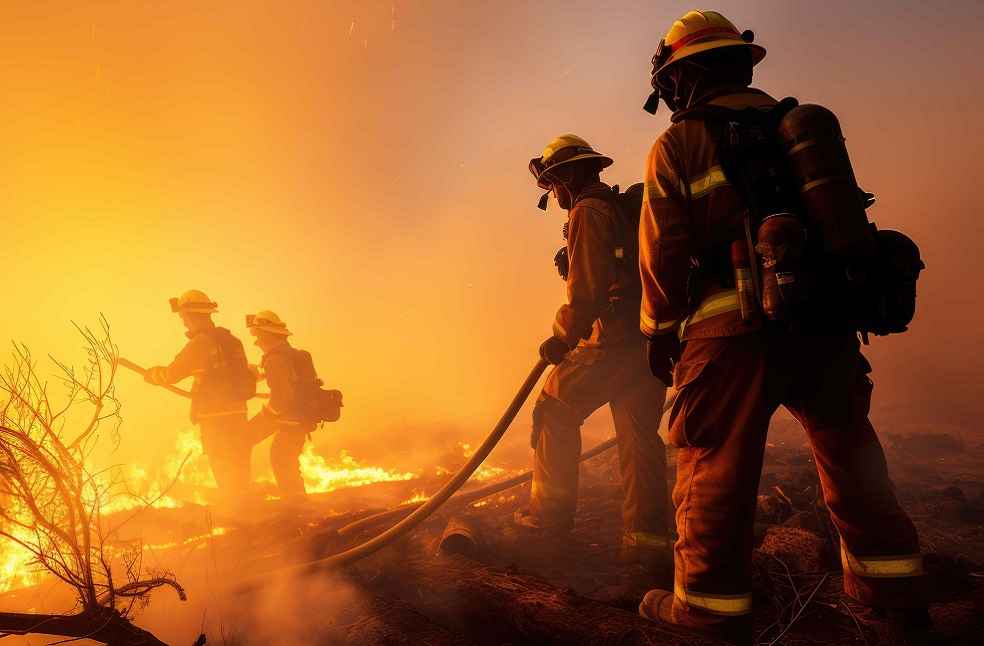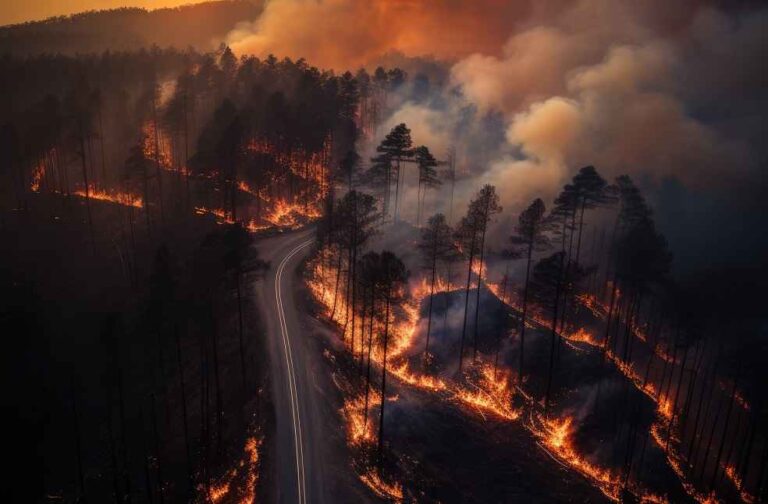Ottawa, Capital of Canada: Canada’s 2023 wildfire season emitted as much carbon into the atmosphere as India’s annual fossil fuel emissions, according to a new study. The fires, which consumed 4% of Canada’s vast forests, highlight the impact of extreme heat and drought on boreal forests near the Arctic, making them more prone to burning.
The study, published in Nature by an international team of researchers, emphasizes the challenges in carbon accounting. Canada does not report wildfire-related emissions to the U.N. under the Paris Agreement, despite the significant impact these emissions have on global carbon levels.
The 2023 fire season was the hottest and driest in the 44 years examined. Lead author Brendan Byrne from NASA’s Jet Propulsion Laboratory noted that the carbon emissions from this season were far higher than expected. The study estimated emissions using satellite-based wildfire sensors and found that Canada emitted 647 million metric tons of carbon from wildfires in just five months. This amount is comparable to the annual fossil fuel emissions from the world’s top 10 emitters and is more than four times larger than Canada’s own annual fossil fuel emissions.

Climate projections indicate that extreme fire weather conditions will become more common, potentially compromising Canada’s forests as a carbon sink. Despite this, Canada does not currently count wildfire emissions as part of its carbon reporting, treating them as “natural disturbances.”
Brendan Byrne emphasized the importance of considering all carbon emissions and removals to meet global warming targets, even if they are not officially counted. As climate change intensifies, the reliability of forests as carbon offsets is increasingly in question. This summer, some forests used in carbon offset programs burned, releasing greenhouse gases and negating their intended carbon benefits.
The study warns that the extreme heat and drought seen in Canada may soon become the norm, making it even more challenging to predict how ecosystems will sequester carbon in the long term. As Byrne noted, “Climate change will certainly impact all ecosystems, and it is very challenging to model or predict how these changes will impact ecosystems’ ability to sequester carbon.
INFORMATIVE | Surprising study reveals kids trust robots over humans



